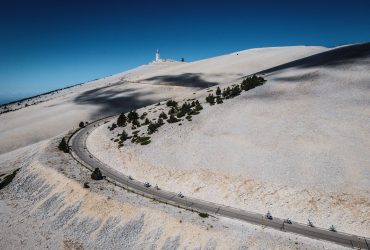From long American gravel roads to continental crossings, these are the gravel races that offer participants the most mileage (and elevation gain) on the planet.
Gravel races are becoming more and more common every year and almost every bike festival now has a dedicated event. For its 2022 edition, the Roc d'Azure offered a 65.4km gravel race on the 4×4 tracks surrounding Fréjus and Saint-Raphaël. But if you want to go further, if you are ready to ride all day and then the next day, we have selected here some of the longest and most difficult races on the planet. It's an opportunity to discover new countries and to challenge yourself physically on events that in some cases exceed 4,000 km.
BikingMan - Brazil: 1,000 km / 17,500 m of D+.
The BikingMan is the world's first ultradistance bicycle racing championship. While most events take place solely on the road (such as the one in France organized this year between the Côte d'Azur and the Gorges du Verdon), the Brazilian race held on November 1st offered a more typical terrain, with a more rugged and challenging course. gravel with 25% of trails and 5% of pavement (the rest on asphalt). The opportunity to explore some of the oldest mountains in South America over 1,000km and 17,500m of positive elevation gain. As with all BikingMan exploration bike races, this one was conducted without external assistance. Competitors had five days (120 hours) to complete the race, passing through two mandatory checkpoints.
Bonus : Catalunya Trail - Spain : 655 km / 12 000 m of D+.
In 2021, the fourth edition of the Catalunya Trail was held on the gravel roads of Girona. The Titan course is a circular loop that starts and ends in Girona and offers a gargantuan menu of 655km and 12,000 metres of positive elevation gain to competitors who dare to tackle this insane route. A GPS allows you to see the location of other participants if you want to win, or ride with someone to pass the time. The Catalunya Trail also offers shorter distances of 230 and 400 km for those who don't like the Titan event.
Transcontinental Race - Europe: Approximately 4,000 km / elevation gain depending on the route
Unlike the two above-mentioned races, the Transcontinental Race is run in roaming mode over several weeks. All you have to do is cross Europe, indicating the start and finish points as well as four checkpoints. Participants are then free to improvise their route across the old continent. Some choose to avoid the mountain ranges, thereby extending the distance, while others go straight through the mountains, taking in a series of passes. On average, the total distance is around 4,000 km. In 2019, it was a woman, Germany's Fiona Kolbinger, who was the fastest to reach Brest after setting off from Bulgaria. It took her ten days, two hours and 48 minutes to complete the course and beat all the men.
Silk Road Mountain Race - Kyrgyzstan: 1600 km / 26 000 m of D+.
Traced as its name suggests along the Silk Road, this event is set on the rugged trails of Kyrgyzstan. It is a real feat to reach the end of this 1,600 km long race. The difference in altitude is the most difficult to swallow with more than 25,000 meters of D+... The organization imposes a time limit of 14 days to reach the end of the race whose arrival is planned in Balykchy.
Dirty Kansas 200 - USA : 322km
While the distance is a hefty 322km, the elevation gain is very low on the Dirty Kansas 200, which is considered the first gravel race in history and has been run since 2006. The DK200 takes place in the Flint Hills region of east central Kansas. To have any hope of winning, you have to come close to the record time set by Brian Jensen in 2014 who took 10:42 to complete the 322km.










